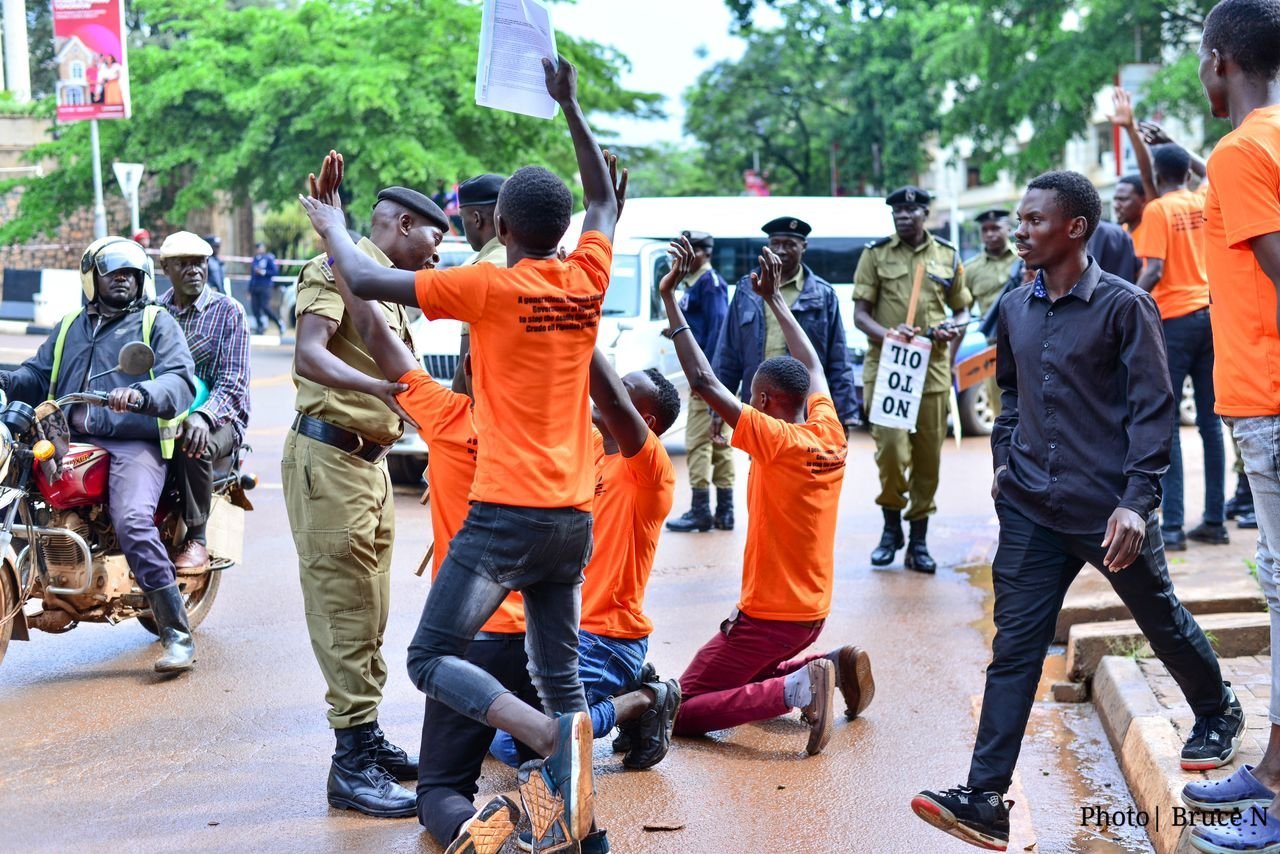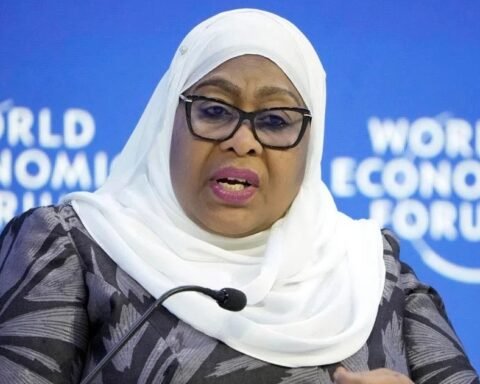Eleven young environmental activists in Uganda have been arrested and sent to Luzira Prison after staging a protest at the European Union (EU) Mission in Kampala.
The demonstration, which took place on February 26, 2025, was aimed at opposing the construction of the $5 billion East African Crude Oil Pipeline (EACOP).
The group, mostly university students affiliated with “Students Against EACOP Uganda,” was among more than 25 activists who marched to the EU offices, hoping to present a petition. Their appeal urged EU leaders to push France to withdraw its support for TotalEnergies, the project’s main financial backer.
Among those arrested were Shaffic Kalyango, Joseph Ssengozi, and Namuddu Rahima, alongside eight others. They have been charged with “common nuisance” under Section 65(e) of the Road Acts Cap 346, with authorities stating that their protest disrupted activities at the EU offices.
Activists Raise Environmental Concerns
The activists argue that EACOP—set to transport crude oil from Uganda’s Lake Albert region to Tanzania’s coast—will cause serious environmental and social harm. They warn of mass displacement of communities, destruction of ecosystems, and increased risks of gender-based violence in affected areas.
“These arrests will not silence us,” said one activist before being taken into custody. “EACOP is a threat to our land, our water, and our people. We have to speak out.”
The protest follows growing opposition to the pipeline both locally and internationally. Human rights groups have raised concerns about the displacement of thousands of people, while environmentalists warn that the pipeline could worsen the climate crisis.
Also Read; Russia Strikes Ukraine’s Power Plant
Amid Winter
Despite the backlash, Ugandan authorities remain committed to the project. The pipeline, a partnership between TotalEnergies, China’s CNOOC, and the governments of Uganda and Tanzania, is seen by officials as a major economic opportunity.
However, EACOP has faced significant financial roadblocks. Many international banks have withdrawn from funding the project due to activist pressure. In response, stakeholders have sought alternative financing, relying more on equity contributions.
Uganda’s Energy Minister, Ruth Nankabirwa, recently reaffirmed the government’s determination to move forward. “This project is crucial for Uganda’s development. We will not be derailed,” she said in a statement.
The arrest of the 11 activists has sparked criticism from rights organizations, which accuse authorities of suppressing peaceful protest. Similar detentions last year led to global outcry, with UN experts warning against the criminalization of climate activism in Uganda.
For now, the activists remain in custody, awaiting further legal proceedings. Their case has drawn international attention, with environmental groups pledging continued pressure against the controversial oil project.







